“As a lastborn, your African parents do not stop looking at you as their baby. You are their baby. And so, letting you go is never easy,” she said.
Asked whether there is any specific way in which the middle children behave in Religious Life in comparison to their firstborn and lastborn counterparts, the Catholic scholar said that she had not seen the former behave in any unique way.
She, however, pointed out that middle children show that they are “free” from societal roles and expectations that characterize African traditional backgrounds, and tend to grow more in responsibility and balance.
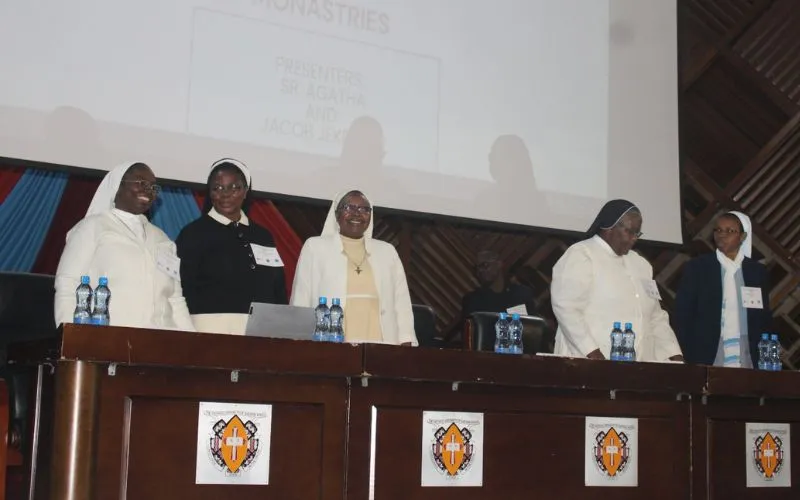 Credit: ACI Africa
Credit: ACI Africa
“It is not so much the behavior,” she said, and continued, “As a middle child, culture does not expect you to either be the one to give the care or to be the one ruling the other children. And so, one thing that we would say is that the middle child is free from any hindrances to become who they want to be in their lives.”
(Story continues below)
She said that in an African setting, parents impact a lot on the vocations of their children. “As you grow, your parents are either grooming you to be a wife or to be a husband, or they are grooming you to be in the church,” she said.
The middle child, he added, tends to be more mature “because they are watching those that are ahead of them.”
“That is all I can say about their behavior,” Sr. Bibiana admitted.
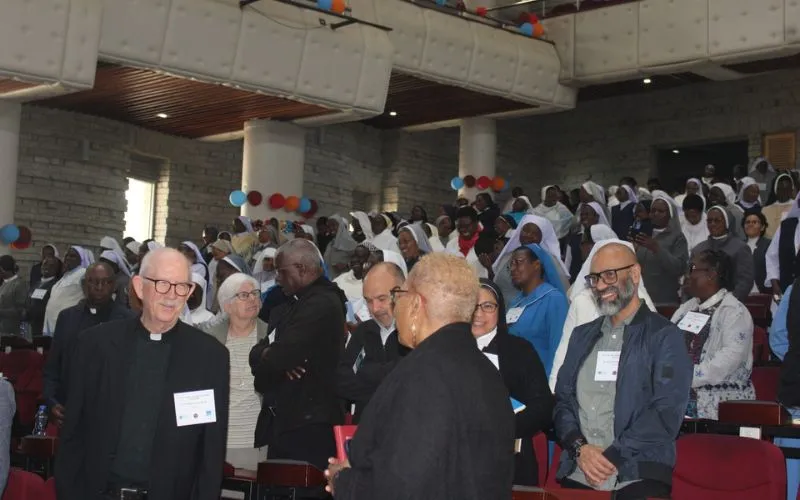 Credit: ACI Africa
Credit: ACI Africa
Titled “Longitudinal Study on the Formation of Religious Sisters from Novitiate to Perpetual Profession”, the study is aimed at examining how religious formation influences the vocation of a Religious Sister and the mission effectiveness in Africa.
In her presentation on the second day of the June 10-12 research symposium, which was held at the Catholic University of Eastern Africa (CUEA) in Nairobi, Kenya, Sr. Bibiana explained that those involved in the study also seek to establish the effectiveness of the formation of Religious Sisters. “Does this formation help them to grow? Does it help them to serve better? And also, how does it impact the overall well-being of the particular Sister?” she said.
The Catholic scholar and senior lecturer at CUEA explained that the formation of a Religious Sister centers on four main areas: the spiritual dimension, the human development in terms of self-awareness, the pastoral aspect, and the intellectual dimension.
In the study on formation, particularly focusing on novices, the CERRA-Africa sought to understand “the nature and the kind of novices that we are dealing with.”
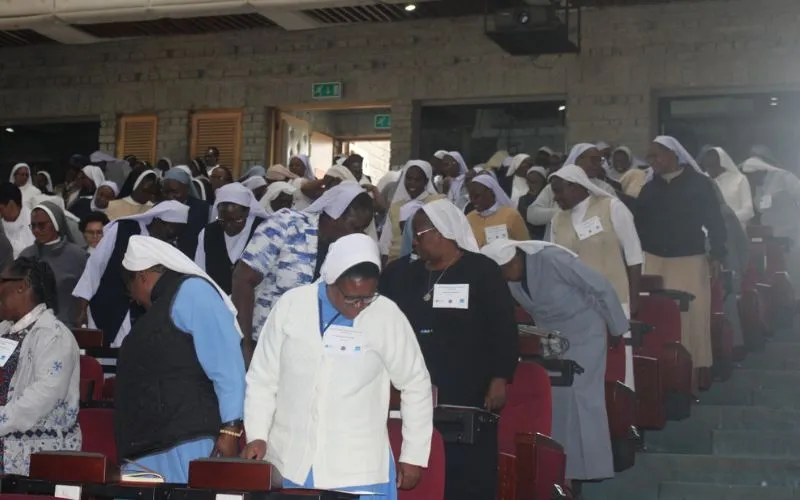 Credit: ACI Africa
Credit: ACI Africa
“That is why we ask them, are you firstborn, are you lastborn?” Sr. Bibiana said, and added, “We all know that psychologically it is very important that you understand whether this person is a firstborn, because there is a way that firstborns behave, and there is a way that lastborns behave. And so this is very important for formators, because they can be able to understand the nature of these novices and deal with them in a specific way.”
The researchers’ investigation into the spiritual dimension of formation uncovered that in all the formation houses in the study, the novices are receiving sufficient mentorship.
“The novices said that they do their examination of conscience for at least 30 minutes,” Sr. Bibiana said, and congratulated the formators who gathered at the symposium for a job well done in mentoring the novices spiritually.
“The Sisters are also doing their meditation, a majority of them say they are attending Holy Mass daily. Others weekly. Others fortnightly. And this could be understood because congregations are placed differently,” the Kenyan researcher who serves as CERRA-Africa’s Research Management Committee Secretary said.
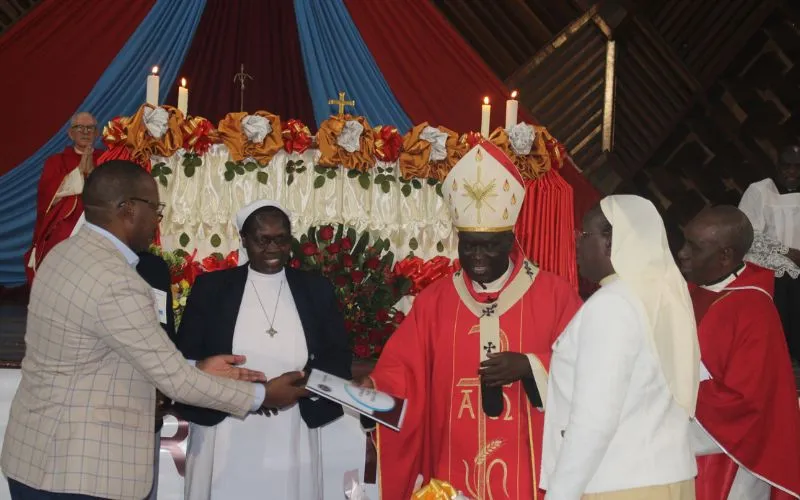 Credit: ACI Africa
Credit: ACI Africa
She pointed out that on the intellectual dimension, the novices are satisfied with their curriculum, but have little understanding of Theology and Philosophy.
“Our novices reported that the curriculum that they are given on Mariology, Scripture, and the rest is very helpful to them. But a majority of them said they did not understand much about Theological aspects and Philosophical aspects,” Sr. Bibiana said, and added, “I think this calls for a deeper collaboration between formation houses and universities. You can send Sisters to study theology and Philosophy at CUEA, at Tangaza University to fill this gap.”
In the CERRA-Africa study, the novices appreciated the monthly accompaniments with their formators in recollections and other forms of spiritual direction, and testified that they were experiencing a growing love for their vocation. They said that they felt a growing rootedness in their Congregations and their charisms.
A majority of the novices in the study also testified about having a reliable provision of their basic needs and being exposed to leadership opportunities.
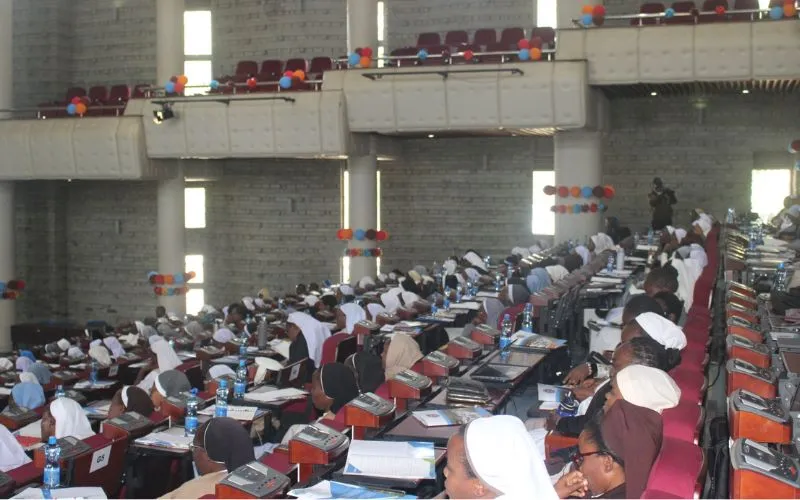 Credit: ACI Africa
Credit: ACI Africa
On the human dimension, they reported increased self-awareness, confidence, and inner freedom as they learn having different lessons that have contributed to that experience.
The Sisters said that they had had a chance to heal from their negative past experiences.
The CERRA-Africa study on the formation of Religious Sisters in Africa also unearthed the challenges that some congregations in Africa are facing, including too much work without breaks, a lack of daily Masses for some of the Sisters, as well as lack of sufficient mentorship.
In some Congregations, the Formator does everything, Sr. Dr. Lucy Mwesa, who presented a section of the findings by CERRA-Africa, said, adding that in dire situations, it is the Formator who acts as the mentor, the spiritual director, the counselor for students, and the one in charge of the house. “If there's tension, the young people have nowhere to turn because you meet the same person everywhere,” the official said.
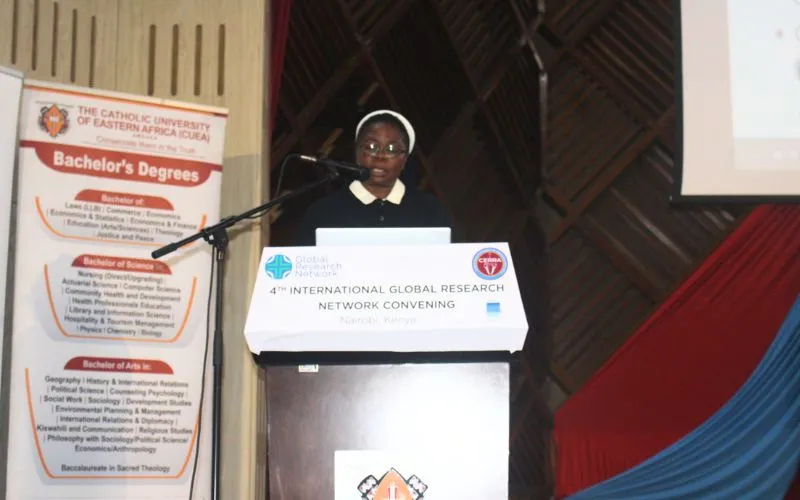 Sr. Dr. Lucy Mwesa, a member of the Order of Preachers (OP/Dominicans). Credit: ACI Africa
Sr. Dr. Lucy Mwesa, a member of the Order of Preachers (OP/Dominicans). Credit: ACI Africa
The member of the Order of Preachers (OP/Dominicans) noted that in some Congregations, progress between the various stages of formation was delayed owing to a lack of enough resources.
“We got information that in some cases, all stages of formation are in one formation house. Everything happens under one roof. The candidacy, the novices, the newly professed, everything is mixed to grill, which is not healthy because these people are at different stages of their growth,” Sr. Lucy said.
She added, “Due to a lack of space, there are congregations that actually delay those aspiring candidates from joining. They tell them to wait until one group is finished for them to come and join.”
The study also uncovered a severe lack of basic services in some communities, with members starving in some places.
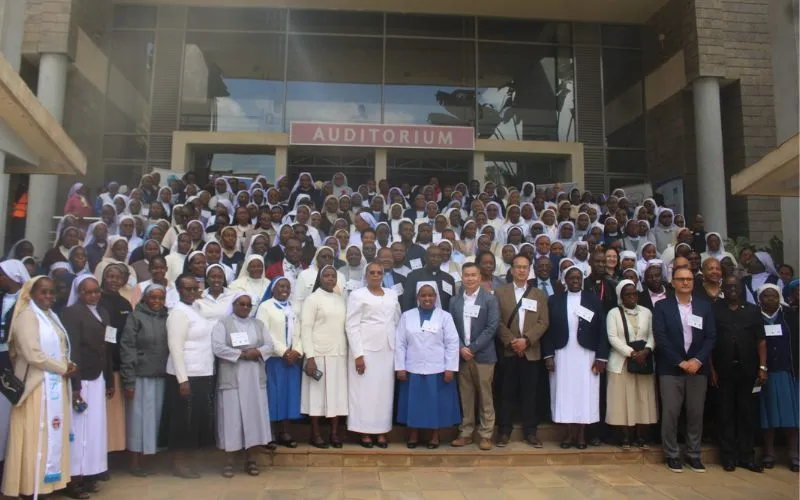 Credit: ACI Africa
Credit: ACI Africa
“The novices reported that they don't have enough food. A bit of starvation, which is not good for the spirit and for the human soul,” the Dominican Nun from Zambia said.
In their set of recommendations, the CERRA-Africa researchers suggested that young women entering Religious life be given opportunities for recreation, especially outdoor activities.
They also underlined the need to strengthen spiritual formation, enhance community life, and foster intellectual and emotional growth among novices.
Agnes Aineah is a Kenyan journalist with a background in digital and newspaper reporting. She holds a Master of Arts in Digital Journalism from the Aga Khan University, Graduate School of Media and Communications and a Bachelor's Degree in Linguistics, Media and Communications from Kenya's Moi University. Agnes currently serves as a journalist for ACI Africa.



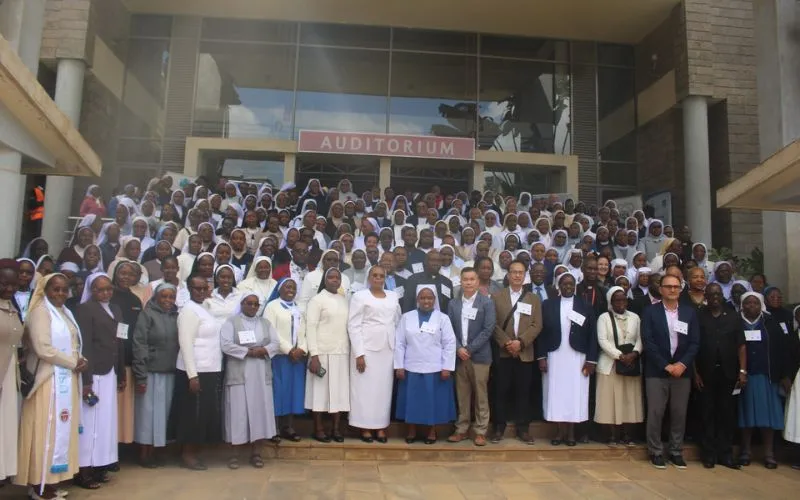
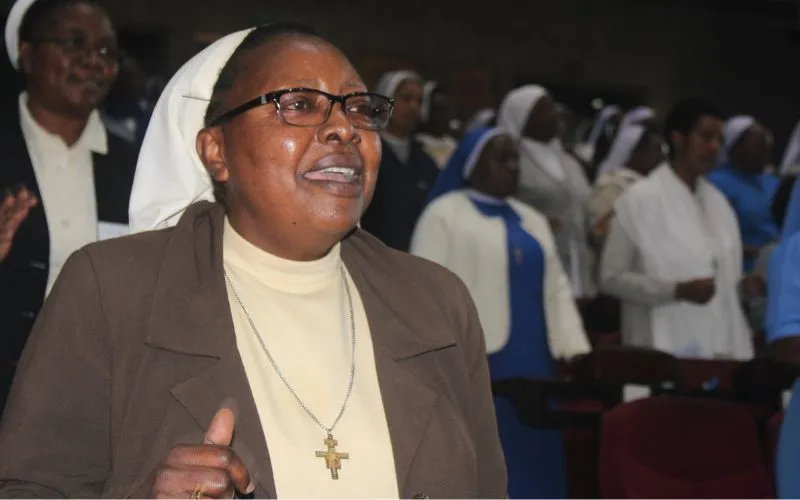 Sr. Bibiana Ngundo, a researcher at CERRA-Africa during Holy Mass to close the centre's research symposium in Nairobi, Kenya. Credit: ACI Africa
Sr. Bibiana Ngundo, a researcher at CERRA-Africa during Holy Mass to close the centre's research symposium in Nairobi, Kenya. Credit: ACI Africa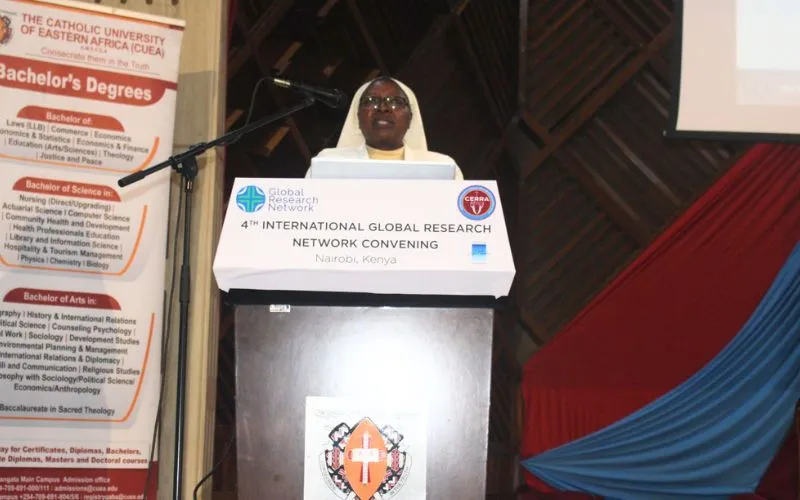 Credit: ACI Africa
Credit: ACI Africa
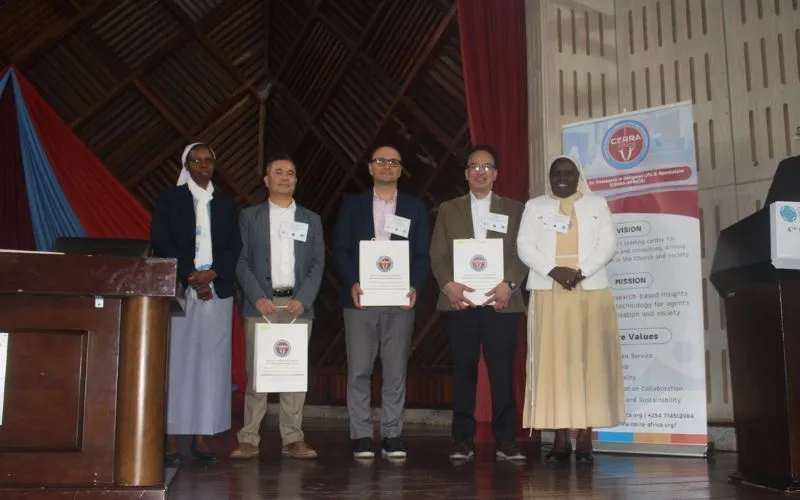 Credit: ACI Africa
Credit: ACI Africa Credit: ACI Africa
Credit: ACI Africa Credit: ACI Africa
Credit: ACI Africa Credit: ACI Africa
Credit: ACI Africa Credit: ACI Africa
Credit: ACI Africa Credit: ACI Africa
Credit: ACI Africa Sr. Dr. Lucy Mwesa, a member of the Order of Preachers (OP/Dominicans). Credit: ACI Africa
Sr. Dr. Lucy Mwesa, a member of the Order of Preachers (OP/Dominicans). Credit: ACI Africa Credit: ACI Africa
Credit: ACI Africa


